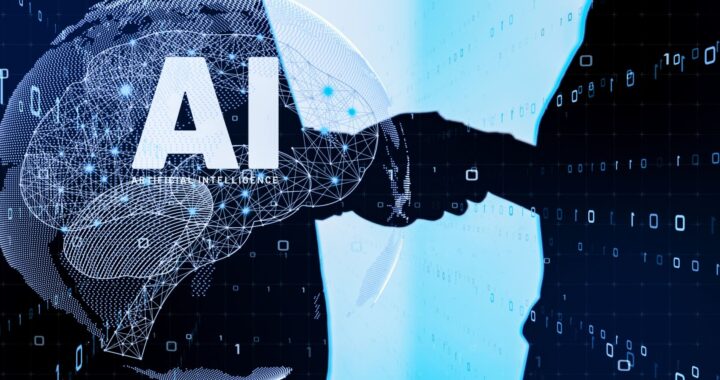How Managed IT Services Can Help Prevent Cybersecurity Threats

As cybercrime continues to evolve, businesses face an increasing number of threats that could severely impact their operations. The risk of data breaches, malware attacks, and other forms of cybercrime has grown, making it vital for organizations to stay ahead of these challenges. However, the complexity of modern cybersecurity requirements can be overwhelming for many companies, particularly those without a dedicated IT team. This is where managed IT services become essential. CranstonIT’s website offers an array of solutions designed to protect your business from these dangers, providing expertise that can shield your company from potential threats.
Understanding Managed IT Services
Managed IT services involve outsourcing specific IT tasks to external providers who are experts in these areas. This approach lets businesses concentrate on their core activities while a team of professionals manages their IT requirements. These service providers offer a variety of solutions, such as network security, data backup, disaster recovery, and more. They work to keep businesses secure by continuously monitoring systems, applying updates, and addressing potential threats as they arise.
For companies facing challenges in managing their cybersecurity, working with a managed IT service provider can be a smart decision. These providers bring valuable expertise and experience in protecting against cyber threats.
The Role of Managed IT Services in Cybersecurity
Cybersecurity is vital for businesses, regardless of size. Managed IT services help safeguard a company’s digital assets by implementing security measures and offering continuous support.
Proactive Threat Monitoring
Managed IT services play a crucial role in preventing cybersecurity threats by using proactive monitoring. By consistently tracking a company’s network for suspicious activity, managed service providers can identify potential threats early, reducing the risk of significant damage. This involves monitoring unusual login attempts, unauthorized access, and other warning signs of a possible breach.
Regular Security Updates and Patch Management
Maintaining up-to-date software and systems is vital for protecting against cyber threats. Managed IT services regularly update all systems with the latest security patches, reducing the risk of vulnerabilities that cybercriminals might exploit. Consistent updates help safeguard system integrity, making it more challenging for attackers to gain access.
Firewall Management and Intrusion Detection
Firewalls and intrusion detection systems play a critical role in cybersecurity. Managed IT services handle the ongoing management of these systems, making sure they are properly configured and functioning as intended. By keeping an eye on firewall logs and responding promptly to alerts from intrusion detection systems, managed IT service providers can swiftly resolve issues and help prevent unauthorized access.
Data Encryption and Protection
Data encryption is a key component of cybersecurity. Managed IT services can deploy robust encryption protocols to safeguard sensitive information, making it secure even if intercepted. This is crucial for businesses managing substantial amounts of confidential data, such as customer records or financial information.
Regular Security Assessments and Testing
To stay ahead of potential threats, regularly assessing your system’s security is crucial.

Managed IT service providers can perform security assessments and penetration testing to uncover vulnerabilities. By addressing these weaknesses before they can be exploited by attackers, businesses can maintain a robust security posture.
Compliance with Industry Regulations
For many businesses, adhering to industry regulations is crucial. Managed IT services can help meet these requirements by configuring systems to comply with relevant standards. This often involves implementing security measures, conducting regular audits, and supplying documentation to prove compliance.
Meeting Regulatory Standards
Industries face various regulatory requirements, such as HIPAA for healthcare and PCI-DSS for payment processing. Managed IT service providers have the expertise to assist businesses in meeting these standards. They guide the implementation of essential security measures and ensure that systems comply with relevant regulations.
Ongoing Compliance Monitoring
Maintaining compliance is an ongoing task, not a one-time effort. Managed IT services offer continuous monitoring to keep systems compliant over time. This involves regular audits and reviews to confirm that security measures remain effective and no new vulnerabilities have emerged.
Employee Training and Awareness
Human error is a major factor in many cybersecurity incidents. Managed IT services can reduce this risk through employee training and awareness programs. These programs teach employees best practices for cybersecurity, including identifying phishing emails, creating strong passwords, and steering clear of unsafe online activities.
Importance of Training
Training is a crucial component of a cybersecurity strategy. Educating employees on safeguarding themselves and the company against cyber threats can greatly lower the risk of security breaches. Managed IT services offer tailored training programs designed to meet the unique needs of the organization.
Regular Updates and Refreshers
Cybersecurity is an ever-changing field, with new threats appearing frequently. Managed IT services offer regular updates and training to keep employees informed about the latest threats and protective measures. This helps maintain high awareness levels and minimizes the risk of human error causing a security incident.
Data Backup and Disaster Recovery
Data loss can severely impact a business. Managed IT services can mitigate this risk by implementing strong data backup and disaster recovery strategies. These strategies ensure that essential data is consistently backed up and can be swiftly restored in case of a disaster.
Regular Data Backups
One of the key components of a disaster recovery plan is regular data backups. Managed IT services can automate this process, ensuring that data is backed up at regular intervals without requiring manual intervention. This helps protect against data loss due to hardware failure, cyberattacks, or other unforeseen events.
Off-Site Storage
In addition to regular backups, managed IT services can provide off-site storage solutions. This involves storing copies of critical data in a secure location separate from the primary data center. In the event of a disaster, such as a fire or flood, having off-site backups ensures that data can still be recovered, minimizing downtime and disruption to the business.
Rapid Recovery Solutions
When disaster strikes, rapid recovery is essential. Managed IT services can provide the tools and expertise needed to quickly restore data and get systems back online. This reduces downtime and helps businesses resume operations as quickly as possible.
Access Control and Identity Management
Controlling who has access to your systems and data is a fundamental aspect of cybersecurity. Managed IT services can implement access control and identity management solutions to ensure that only authorized personnel can access sensitive information.
User Authentication
Managed IT services can implement strong authentication methods, such as multi-factor authentication (MFA), to verify the identity of users before granting access to systems.

This adds an extra layer of security, making it more difficult for unauthorized users to gain access.
Role-Based Access Control
In addition to authentication, managed IT services can implement role-based access control (RBAC) to limit access to sensitive information based on the user’s role within the organization. This ensures that employees only have access to the information they need to perform their jobs, reducing the risk of data breaches.
Regular Access Audits
To maintain a high level of security, it is important to regularly audit access controls and review who has access to sensitive data. Managed IT services can perform these audits and make necessary adjustments to ensure that access is appropriately restricted.
Proactive Maintenance
Keeping systems up-to-date and running smoothly is another key aspect of cybersecurity. Managed IT services provide proactive maintenance, including regular software updates, hardware checks, and system optimizations.
Software and Hardware Maintenance
Regular maintenance is essential to prevent system failures and security vulnerabilities. Managed IT services can ensure that all software is up-to-date with the latest security patches and that hardware is functioning properly. This helps maintain the stability and security of the IT environment.
Monitoring for Potential Issues
Managed IT services also provide ongoing monitoring to detect potential issues before they become serious problems. This includes monitoring system performance, network traffic, and other indicators that could signal a security threat. By identifying and addressing these issues early, businesses can avoid costly downtime and maintain a secure environment.
Preventative Measures
In addition to monitoring, managed IT services can implement preventative measures to reduce the risk of system failures. This includes regular system checks, performance optimizations, and other actions to keep systems running smoothly.
Conclusion
Managed IT services offer businesses a powerful tool in the fight against cybersecurity threats. By outsourcing IT management to experts, companies can protect their systems and data from a wide range of threats. Whether through proactive monitoring, regular maintenance, or employee training, managed IT services provide the support needed to maintain a secure and compliant IT environment. With the right partner, businesses can focus on their core operations, confident that their cybersecurity needs are being handled by professionals.
A quick Google search for terms like “managed IT services Australia” or “cybersecurity solutions near me” can help businesses find trusted providers who offer tailored IT support and security solutions for companies of all sizes.

 EV Course: What to Expect from an e-Postgraduate Diploma in E-Mobility
EV Course: What to Expect from an e-Postgraduate Diploma in E-Mobility  Autonomous AI Agents Are Revolutionizing the Way We Handle Cybersecurity Breaches
Autonomous AI Agents Are Revolutionizing the Way We Handle Cybersecurity Breaches  Using ZTNA to Manage Remote Access to Cloud-Based DevOps Tools
Using ZTNA to Manage Remote Access to Cloud-Based DevOps Tools